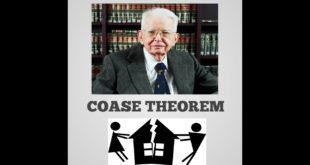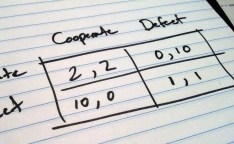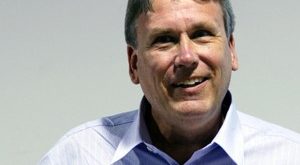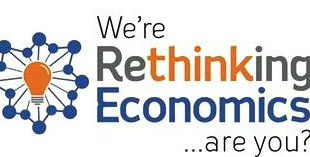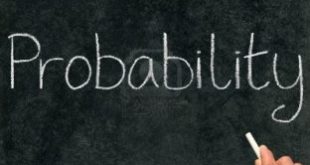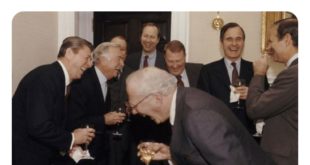September 11, 2023, marks the fiftieth anniversary of General Pinochet’s military coup against Chilean President Salvador Allende. While it is now widely recognized that Pinochet authorized large-scale human rights abuses, there is an accompanying narrative that he also unleashed an economic miracle via embrace of Milton Friedman’s “Chicago Boys” vision of a market economy. The […]
Read More »Coase theorem
In mainstream economic theory, institutions were long taken for granted. As the far-reaching consequences of institutional assumptions have become increasingly difficult to ignore, economists have, in recent times, made greater efforts to incorporate institutions into their models. This renewed interest in broadening economic theory to encompass economic and political institutions has centred on the analysis of property rights and transaction costs. Ronald Coase’s work has...
Read More »The current state of game theory
The current state of game theory One of the most widespread myths in economics, but also in sociology and political science, is that game theory provides “tools” that can help solve concrete problems in these branches – especially in economics. Introductory and advanced textbooks thus often speak of the “applications” of game theory that are being made, giving the impression that they are revolutionizing the social sciences. But, looking more closely, we...
Read More »On the importance of history and methodology
On the importance of history and methodology Nowadays there is almost no place whatsoever in economics education for courses in the history of economic thought and economic methodology. The standard view among mainstream economists is that students shouldn’t think about what they are doing, but just do it. This is deeply worrying. A science that doesn’t self-reflect and asks important methodological and science-theoretical questions about its own activity,...
Read More »Economics education needs a revolution
Economics education needs a revolution You ask me what all idiosyncrasy is in philosophers? … For instance their lack of the historical sense, their hatred even of the idea of Becoming, their Egyptianism. They imagine that they do honour to a thing by divorcing it from history sub specie æterni—when they make a mummy of it. Friedrich Nietzsche Nowadays there is almost no place whatsoever in economics education for courses in the history of economic...
Read More »Economics and probability
Modern mainstream (neoclassical) economics relies to a large degree on the notion of probability. To be amenable to applied economic analysis, economic observations allegedly have to be conceived as random events that are analyzable within a probabilistic framework. But is it really necessary to model the economic system as a system where randomness can only be analyzed and understood when based on an a priori notion of probability? When attempting to convince us of the...
Read More »The economic consequences of tax cuts for the rich
The economic consequences of tax cuts for the rich Given the lack of consensus in existing empirical analyzes and the difficulties of making causal inferences from macro-level panel data analyzes, it remains an open empirical question how cutting taxes on the rich affects economic outcomes. We believe the question is best answered by looking at the effects of major tax cuts packages, as the story of taxing the rich in the advanced democracies over the past...
Read More »Keynesianismus
.[embedded content]
Read More »Explanatory fictionalism in economics
Explanatory fictionalism in economics One of the limitations of economics is the restricted possibility to perform experiments, forcing it to mainly rely on observational studies for knowledge of real-world economies. But still — the idea of performing laboratory experiments holds a firm grip on our wish to discover (causal) relationships between economic ‘variables.’ If we only could isolate and manipulate variables in controlled environments, we would...
Read More »Broadening the application of hysteresis in economics: institutions, policy lock-in, psychology, identity, and ideas
This paper argues for broadening the application of hysteresis to institutions, policy lock-in, psychology, identity, and economic ideas. Hysteresis is an element of historical processes, and the real world is historical. That explains why hysteresis is pervasive and important. Hysteresis should be a fundamental building block of political economy. Expanding its application in economics is […]
Read More » Heterodox
Heterodox

